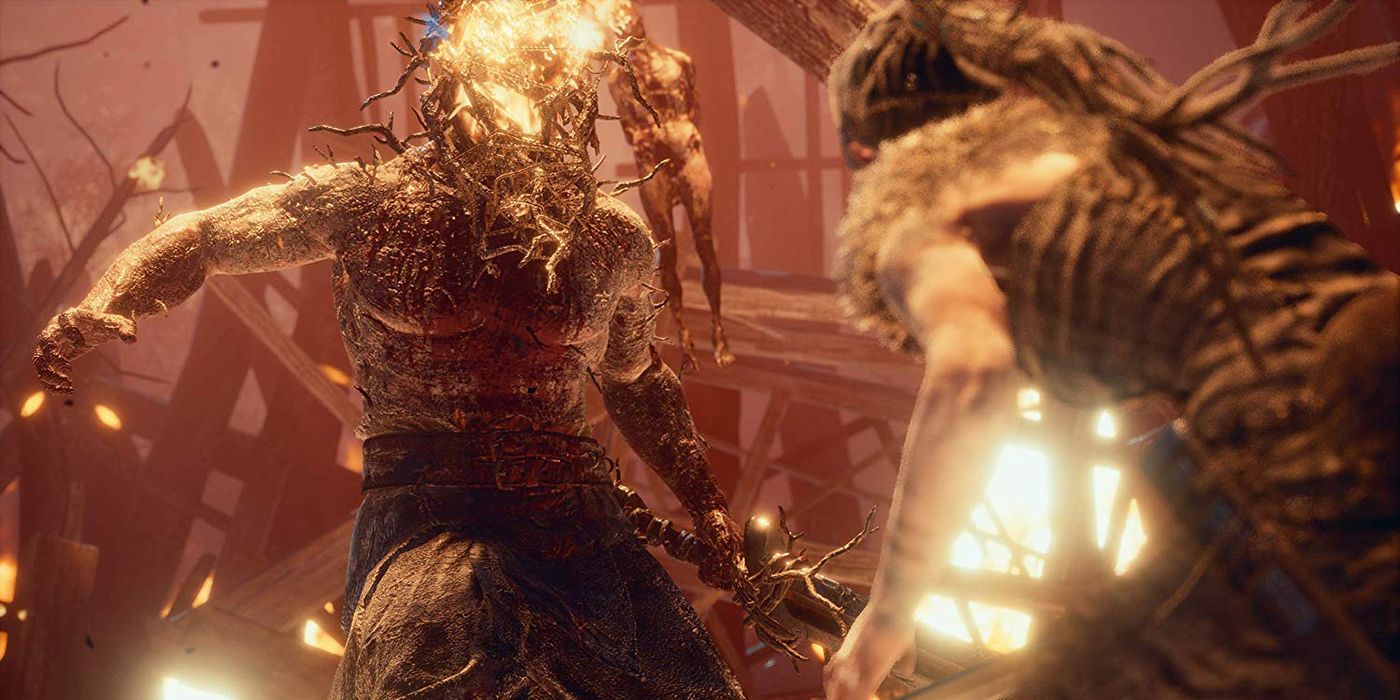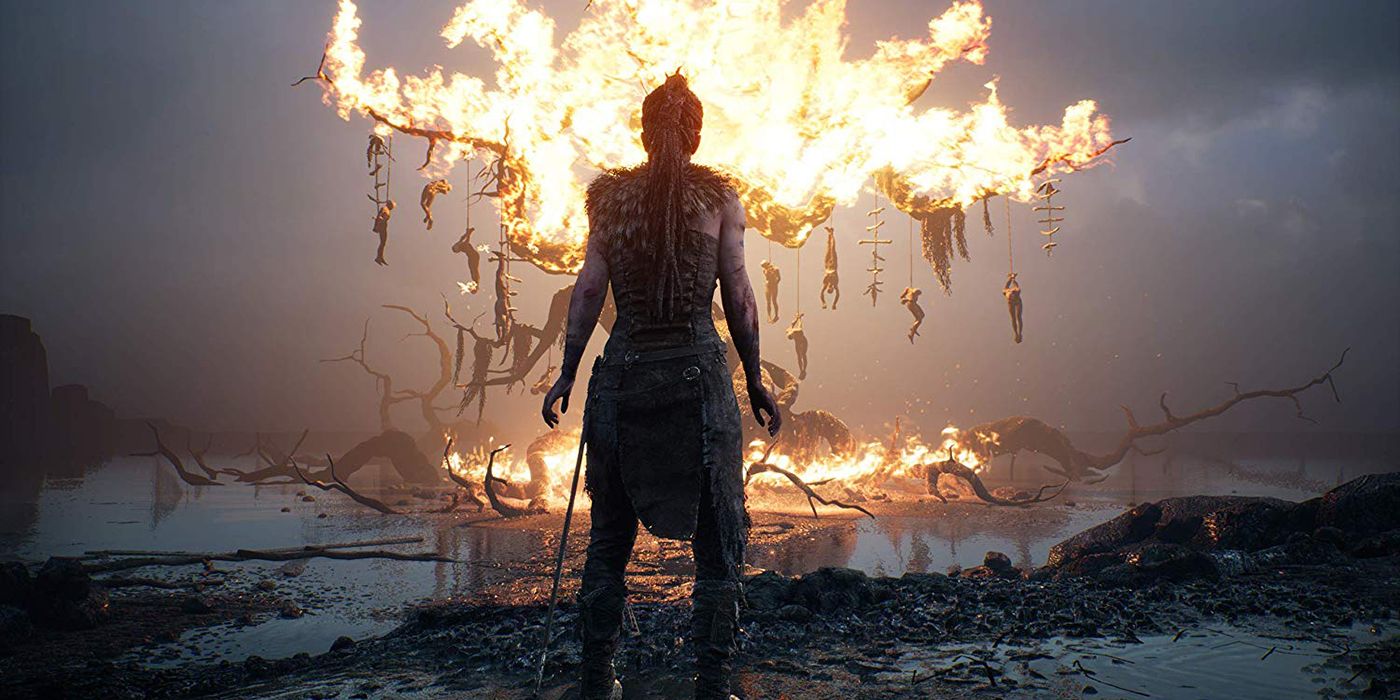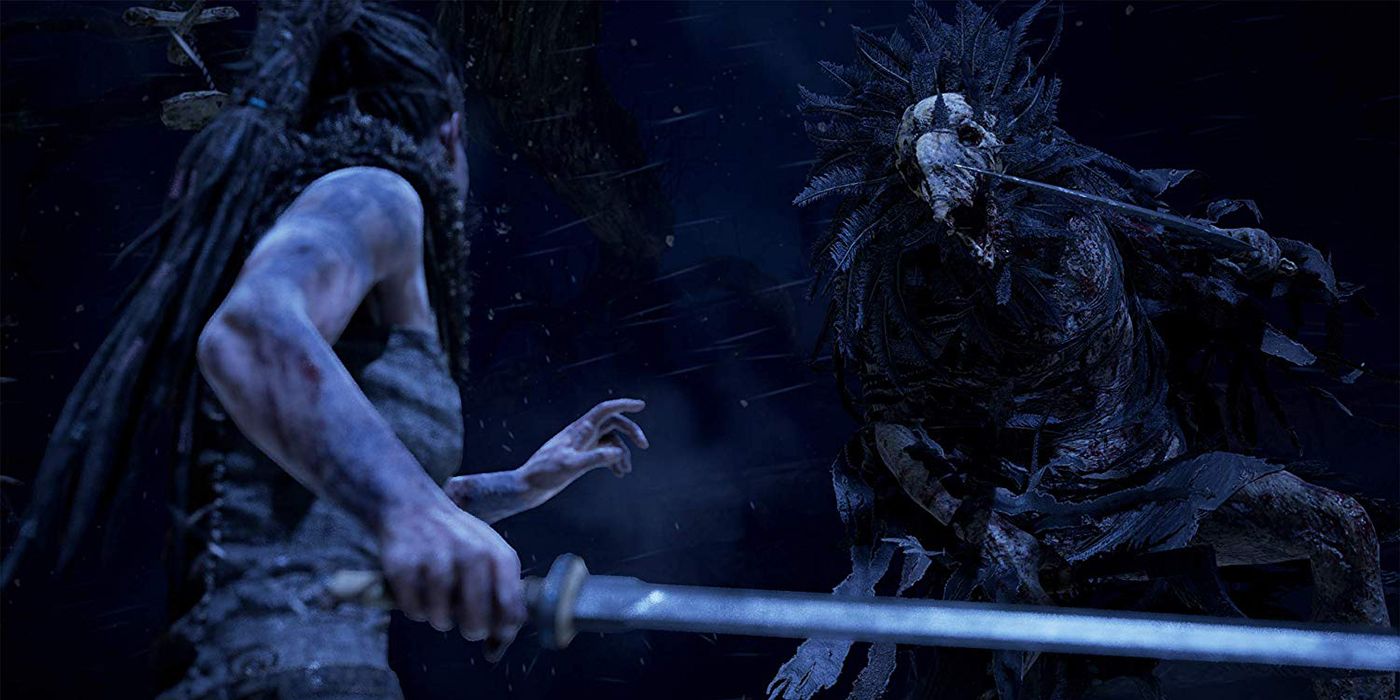Hellblade: Senua's Sacrifice is something remarkable from a developer known for taking risks. Ninja Theory has not always chosen the easy route with its projects, as seen with imaginative cult classic Enslaved: Odyssey to the West and the divisive character choices in its 2013 Devil May Cry entry. However, Hellblade: Senua's Sacrifice is the boldest release of the lot, launching independently of an external publisher and delving deep into themes rarely discussed in video games.
Although God of War has been picking up the Norse myth kudos with its 2018 Game of the Year win, Hellblade: Senua's Sacrifice does a tremendous job of portraying a similar mythology in a very different way. Indeed, Hellblade: Senua's Sacrifice covered this subject matter earlier, as it first released in 2017. However, the game proved so successful that it was able to move away from digital-only availability, with the title launching in a physical format for both PS4 and Xbox One.
Related: The Death and Rebirth of Single Player Games In 2017
Where Hellblade: Senua's Sacrifice differs from its big-budget peer is how it portrays the Norse mythology itself, coming at the culture through a different gaze altogether. Senua is a Pict, having witnessed the Viking gods through the violence of raiding parties that have destroyed her home and those dear to her. The Vikings are therefore a terrifying, dangerous other, and so the legends that have been told through whispers by the scholar Druth take on a dark, horrific turn; the gods are abominations that live just out of view.
Senua is left with nothing, but attempts to bring something back from the ashes. This is no story of heroes and gallant quests, however, and it lives up to the sacrifice of its name. Hellblade: Senua's Sacrifice is a tense and at times claustrophobic game, suffocating the player in dread as they move through its ruined world.
The core gameplay of Hellblade: Senua's Sacrifice comes in two major forms. Senua will have to fight waves of Northmen in combat sections, with a neat and simplistic control scheme, and also spend time solving puzzles of various kinds, from line of sight match-ups to more complex, large-scale set pieces. The game also includes several boss fights, which thankfully all offer up something new and test the player's understanding of the combat mechanics.
However, breaking down Hellblade: Senua's Sacrifice into such basic elements does a disservice to what it attempts to convey. The title drifts constantly, forging ingenious methods of storytelling and taking players through waves of differing emotions. At points, players will feel powerful, at others weak and isolated, and - perhaps more than anything else - afraid.
Although action takes a front seat during major parts of Hellblade: Senua's Sacrifice, there is an overwhelming focus on horror. A lot of this comes from the portrayal of the Northmen apparitions and their gods, taking on a folk horror vibe through their not-quite-human design, and also through some genuine gut-clenching moments of survival horror. The biggest of these moments comes late in the game, as Senua tries to make her way through the dark lair of Garm, but the general ambiance of fear is nearly perpetual.
The most engaging form that this horror takes is psychological. Hellblade: Senua's Sacrifice is as much about mental illness as it is about its surface level plot, with Senua's psychosis not just a tacked on choice, but instead woven into the very fabric of the game's design. The player will see and hear hallucinations, including the projection of characters from Senua's past, and there is a constant question as to how much of Senua's journey is real, outside of her own mind.
Video games aren't always known for their tact with the handling of heavy subject matter, but a great amount of care was taken by Ninja Theory to discuss these themes, and it shows. There are the obvious elements of psychosis, such as the auditory hallucinations, but although these are expertly handled the most impressive elements of Hellblade: Senua's Sacrifice are those more nuanced elements. The game asks questions about delusion, and about the treatment of mental illness in times before it was truly understood.
This leads to Hellblade: Senua's Sacrifice doing something special. It's one of those rare games that makes use of the medium of video games to convey something that other media are not able to do. It treats mental illness as more than a gimmick, succeeding at incorporating a sensitive subject into its gameplay where so many other games have failed.
Hellblade: Senua's Sacrifice isn't perfect, though. Although the combat flows extremely well, with players gaining an almost tactile intuition for blocks and dodges, it's still quite basic and some may feel the longer fights become a bit of a chore. This is a minor complaint, though, with most of the bursts of combat being well-paced, as is the game itself; Hellblade: Senua's Sacrifice doesn't outstay its welcome.
All in all, then, Hellblade: Senua's Sacrifice is both proof that small development teams can make great games, and that video games can handle heavy themes in their own way. Visually impressive and with a genuinely unique voice, Hellblade: Senua's Sacrifice is captivating from the get go. Those who missed out on it last year should definitely give it a shot, particularly given its relatively low price.
More: These Are The Best Video Games of 2017
Hellblade: Senua's Sacrifice is available now for PC, PS4, and Xbox One, with physical copies now available for PS4 and Xbox One. Screen Rant was provided with a PS4 download code for the purposes of this review.




